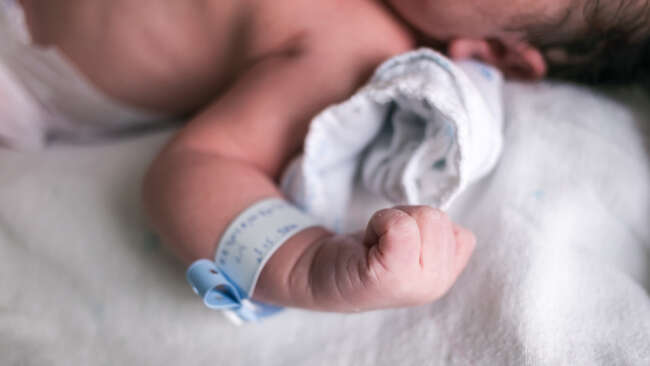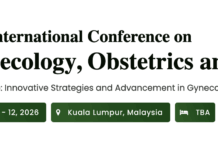When the COVID-19 pandemic first began it was believed to cause mild flu that posed more threat to the elderly and immunocompromised individuals of the community. Unlike the SARS pandemic, the COVID-19 pandemic was thought to spare young children. However, as time went on and the list of symptoms kept increasing, the virus was seen to affect individuals of all ages.
In the past, there have been multiple reports of coronavirus positive mothers giving birth to babies who tested negative. This led scientists to rule out a possibility of transplacental transmission of SARS-CoV-2.
However, a recent study published in the journal Nature Communications describes the first proven case of a baby infected in the womb by contracting the infection from the mother.
The 23-year-old mother had presented to Antoine Béclère Hospital, Paris, in the third trimester of her pregnancy with a high-grade fever and severe cough and, was found to be positive for SARS-CoV-2. Three days after she was admitted, doctors performed an emergency cesarean section after noticing signs of fetal distress on the fetal heart tracing.
Clear amniotic fluid was collected prior to the rupture of membranes, during cesarean section and was seen to be positive for the virus. Three days after birth, the neonate was seen to exhibit rigidity, difficulty feeding, and extreme irritability.
The symptoms were seen to be consistent with the neurological effects of COVID-19 in adults. MRI report of the neonate showed white matter damage and brain swelling. The baby’s blood and fluid from the lungs were also seen to be positive for the virus.
Fortunately, the newborn seemed to recover immediately without any use of medication and follow-up scans conducted 2 months later were seen to be normal.
Doctors found the viral load was highest in the placenta, compared to the amniotic fluid and maternal or neonatal blood. According to the case report, as the placental tissue and, both maternal and neonatal blood were seen to be positive for SARS-CoV-2, it shows that the transmission clearly occurred through the placenta.
However, researchers are not fully convinced. According to Professor Alexander Heazell at the University of Manchester, the study only shows the presence of the virus within the outer layer of the placenta and not the stromal cells. Thus, not proving whether the virus successfully passed through the placenta to infect the fetus.
While previous researches have also hinted at the possibility of in-utero transmission of the virus, the evidence presented in those studies has been circumstantial. They either failed to detect the virus in neonates, only reported the presence of specific antibodies, or failed to systematically test placenta, amniotic fluid, maternal or newborn blood in every mother-infant pair.
Therefore, Dr. Daniele De Luca, senior author of the study, believes this is the first study to offer evidence of transplacental transmission during the last weeks of pregnancy.
The bad news is that this actually happened, and can happen. The good news is that it is rare—very rare compared to the global population.
Dr. Daniele De Luca
Reference:
Vivanti, A.J., Vauloup-Fellous, C., Prevot, S. et al. Transplacental transmission of SARS-CoV-2 infection. Nat Commun 11, 3572 (2020). https://doi.org/10.1038/s41467-020-17436-6
Fenizia, C., Biasin, M., Cetin, I., Vergani, P., Mileto, D. et al. (2020). IN−UTERO MOTHER−TO−CHILD SARS−CoV−2 TRANSMISSION: Viral detection and fetal immune response. doi:10.1101/2020.07.09.20149591




